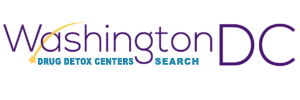Substance use and prevention has been an ongoing theme throughout the month of October. Substance use disorder is based on behavior patterns that support the continued use of substances. The term “substance use disorder” was first coined by the American Psychiatric Association (APA) so doctors could diagnose dysfunctional substance use in their patients. Substance use disorder falls into eight categories that are:
- Hallucinogens
- Cannabis
- Stimulants
- Tobacco
- Opiates
- Alcohol
- Sedatives
- Inhalants
Substance Use Disorders and Prevention
Whether addicted or not to any one of these substances, diagnosis is dependent on specific types of behavior patterns. These markers clearly indicate the possibility of a substance use disorder:
- Social Impairment– Anyone who continues using substances regardless of their unfavorable consequences has a substance use disorder. An addict may isolate himself by withdrawing from family and friends so that he can use his substance in secret. If he still lives at home, there may be arguments and discord about his behavior and substance use. Very often an addict will completely give up social and recreational activities that he once enjoyed taking part in. He may have trouble keeping up at school and may eventually drop out, or his performance level at work may suffer and he might be fired from his job. His ability to maintain relationships usually falters and leaves him isolated and feeling lonely.
- Risky behavior – Addicts will often takes risks while intoxicated, such as driving under the influence, swimming, operating heavy machinery, climbing, handling babies and small children, etc. They will also risk their own physical and mental health even though they know that the substances they use are harming these areas of their life. Their compulsion toward substance use overrides any logic to taper down or stop altogether.
Some substance abusers do not realize the many dangers that these substances are wreaking on their physical and mental health until it is too late. Others who do know the dangers will dismiss them in favor of continuing in their risky behavior.
- Lack of control– Eventually substance use takes on a life of its own and controls the addict. The addict will find himself incapable of cutting back on dosages or stopping his drug or alcohol use. Most often he winds up increasing his dosage and that puts him at risk of toxicity or overdose. An addict will do anything to avoid the torment of cravings and withdrawal symptoms. To compensate for this, the addict will spend most of his time obtaining drugs or alcohol, using the substance and then recovering from the high. This is the cycle of abuse that becomes a way of life for an addict.
- Tolerance and Withdrawal– These are common indicators of a substance use disorder. When a person is using drugs or alcohol the body will try to adapt to the substance use by maintaining homeostatic balance. The body will build up a tolerance to the substance and diminish its effects. The addict will have to increase their dosage to achieve the same effects that they experienced before the tolerance build-up. Once a tolerance has taken hold the addict may experience withdrawal symptoms as the effects of the substance wears off. Substance withdrawal is an unpleasant experience and can be life-threatening depending on what substance was taken. Most addicts require the assistance of medical professionals to manage withdrawal symptoms while they are being weaned off of substances.
- Prevention
Substance use disorder prevention must begin at a young age before the child has considered using drugs or alcohol. Behavioral and mental health analysis could help to identify problems that may eventually lead to substance use and abuse. Treatment options should be available to address any outstanding health issues, which should include medications, counseling and behavior therapy. By treating substance use disorder markers early on we can help to curb and prevent substance use. Let Drug Detox Centers Washington D.C. be your ultimate recovery guide. Just give us a call today at (202) 400-3795.

